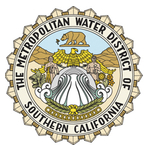
Future of Recycled Water in Southern California Gets a New Name: Pure Water Southern California
Regional Recycled Water Program renamed as project advances
LOS ANGELES–(BUSINESS WIRE)–A new, large-scale local water supply in development for the region is getting a new name – Pure Water Southern California. The water recycling project, being developed by the Metropolitan Water District of Southern California (Metropolitan) in partnership with the Los Angeles County Sanitation Districts (Sanitation Districts), has for years been known as the Regional Recycled Water Program.
“While the earlier name certainly described what we were doing, it didn’t reflect the high quality of water we are producing for Southern California. As this project gets closer to becoming a reality, it is time to give it a name that truly characterizes it and the critical role it will play for our people and communities,” Metropolitan General Manager Adel Hagekhalil said.
“The Sanitation Districts have been leaders in producing recycled water since 1962,” said Sanitation Districts General Manager Robert C. Ferrante. “This project would harvest our last untapped source of cleaned wastewater and more than double the amount of recycled water we produce. We have a great partner in Metropolitan and are committed to making this project a reality.”
The project will take cleaned wastewater and purify it to produce a new, drought-proof source of high-quality water for Southern California. When completed, it will produce up to 150 million gallons of water daily, enough to serve more than 500,000 homes – making it one of the largest water recycling facilities in the world. Purified water from the facility would be delivered through up to 60 miles of new pipelines to the region’s groundwater basins, industrial facilities and two of Metropolitan’s water treatment plants.
“The record drought stressing all of our water supplies is a strong reminder of the need to invest in local, sustainable water supplies that are resilient to the challenges wrought by climate change,” said Metropolitan Chairwoman Gloria D. Gray.
The project is currently in the environmental planning stage. A demonstration facility completed in 2019 at the Sanitation Districts’ Joint Water Pollution Control Plant in Carson allows for testing of the innovative purification process that would be used. The demonstration facility is also open for public tours.
Under the timeline being considered by Metropolitan, the project could be built and in operation within a decade, with the potential for making limited water deliveries at an earlier date.
The Metropolitan Water District of Southern California is a state-established cooperative that, along with its 26 cities and retail suppliers, provides water for 19 million people in six counties. The district imports water from the Colorado River and Northern California to supplement local supplies, and helps its members to develop increased water conservation, recycling, storage and other resource-management programs.
The Sanitation Districts are a regional agency consisting of 24 independent special districts serving over 5.6 million people in 78 cities and unincorporated territory within Los Angeles County. The Sanitation Districts protect public health and the environment through innovative and cost-effective wastewater and solid waste management and, in doing so, convert waste into resources such as recycled water, energy and recycled materials.
Contacts
Rebecca Kimitch, Metropolitan, (213) 217-6450; (202) 821-5253, rkimitch@mwdh2o.com
Maritza Fairfield, Metropolitan, (213) 217-6853; (909) 816-7722, mfairfield@mwdh2o.com
Bryan Langpap, LACSD, (562) 908-4288, ext. 2302; (562) 325-7329; blangpap@lacsd.org

